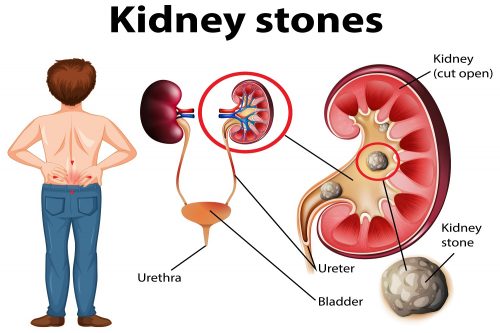Step into a world where every bite is a step toward a healthier, happier you. Low-calorie meals are more than a diet; they’re a transformative experience that redefines the way you nourish your body and soul.
This culinary journey merges the art of flavour with the science of wellness, empowering you to embrace a lifestyle where each mindful choice contributes to a vibrant, fulfilling life.
Join us on this exciting exploration of health and vitality through the delightful world of Low-Calorie Meals. Uncover the secrets to a rejuvenated you, one delicious bite at a time, as we embark on this transformative and flavorful odyssey together.
Let’s have a look into the area of low-calorie meals, exploring their potential to optimize health, promote weight management, and contribute to a vibrant, fulfilling life.
Section 1: Understanding Low-Calorie Meals
1. The Basics of Low-Calorie Diets:
Low-calorie meals revolve around the principle of consuming fewer calories than the body expends. This fundamental understanding of calorie intake and expenditure lays the groundwork for informed dietary choices, empowering individuals to navigate their nutritional journey with awareness and purpose.
2. Balancing Nutrient Density:
In the realm of low-calorie meals, the emphasis is on nutrient-dense foods rich in essential vitamins, minerals, and antioxidants.
Striking a harmonious balance between calorie restriction and nutrient richness becomes paramount, ensuring that health benefits are maximized and individuals thrive on a path to optimal well-being.
Section 2: Health Benefits of Low-Calorie Meals
3. Weight Management:
Beyond a mere dietary choice, low-calorie meals play a pivotal role in effective weight management. By creating a calorie deficit, these meals become instrumental in achieving and maintaining a healthy weight.
This approach supports individuals in their journey toward optimal fitness and fosters a sustainable, balanced relationship with their bodies.
4. Improved Metabolic Health:
Delving into the realm of metabolic health, low-calorie meals, including options like low-calorie dinner choices, offer positive impacts by regulating key factors such as insulin sensitivity, blood sugar levels, and lipid profiles.
These improvements stand as vital guardians against metabolic disorders, fostering a foundation for overall well-being and longevity.
Section 3: Crafting Flavorful and Satisfying Low-Calorie Meals
5. Creative Culinary Techniques:
Crafting low-calorie meals becomes an art through inventive culinary techniques like grilling, roasting, and the strategic use of herbs and spices.
These approaches elevate the taste and visual appeal of meals, proving that deliciousness need not be sacrificed when prioritizing a lower calorie content.
The infusion of rich flavours from various cooking methods transforms each low-calorie dish into a culinary masterpiece, challenging the notion that cutting calories means compromising on taste.
It’s a delightful marriage of creativity and wellness that showcases the artistry behind mindful, flavorful eating.
6. Incorporating Lean Proteins and Fiber:
The heart of low-calorie meals lies in the inclusion of lean proteins and fibre-rich foods. Beyond contributing to satiety, these nutritional powerhouses support muscle maintenance and digestive health.
The result is meals that are not only satisfying but also laden with essential nutrients, creating a harmonious fusion of flavour and nutrition.
With lean proteins providing vital amino acids and protein pacing alongside fiber-rich foods promoting gut health, each low-calorie meal becomes a cornerstone of holistic nourishment, fostering overall wellness and vitality.
Section 4: Practical Tips for Incorporating Low-Calorie Meals
7. Meal Planning and Preparation:
The seamless incorporation of low-calorie meals into daily life hinges on meticulous meal planning and preparation. From thoughtfully selecting ingredients to practising portion control and preparing meals in advance, these strategies form a solid foundation for adherence to a low-calorie regimen. The result is a holistic approach to nutrition that aligns with individual health goals.
8. Mindful Eating Practices:
Cultivating mindfulness during meals transforms the act of eating into a profound experience. Savouring flavours and recognizing satiety cues become paramount in this practice.
By embracing mindful eating, individuals foster a healthier relationship with food, creating a sustainable and positive approach to nutrition. This mindful awareness elevates the dining experience, making each meal a conscious step towards well-being.
Section 5: Potential Pitfalls and Considerations
9. Nutrient Deficiency Risks:
While low-calorie, high-protein meals present numerous health benefits, careful planning is crucial to avoid potential nutrient deficiencies. Individuals must ensure their nutritional needs are met through a well-rounded and varied diet.
Incorporating options like low-calorie, high-protein meals or, if necessary, considering supplementation enhances overall nutrient balance.
10. Impact on Physical and Mental Well-being:
Beyond its potential benefits, extreme calorie restriction may adversely affect physical and mental well-being even with low-calorie, high-protein meals.
Striking a delicate balance between calorie reduction and healthy food relationships is imperative. This approach mitigates negative impacts on mood, energy levels, and overall vitality, fostering a sustainable and holistic approach to well-being.
Conclusion:
Optimizing health through low-calorie meals is a multifaceted journey that requires a blend of nutritional knowledge, mindful choices, and practical strategies.
Whether aiming for weight management, improved metabolic health, or overall well-being, incorporating flavorful and satisfying low-calorie meals is a powerful tool.
Individuals can embark on a sustainable path towards health and vitality by understanding the nuances of low-calorie diets, embracing creative culinary techniques, and adopting mindful eating practices.
Also Read: 8 Best Health And Fitness Tips To Follow Into Everyday Life









